
Everything You Need to Know About Finding Great Airline Deals, Packing Your Bags, and Planning Your Trip
All the details and intricacies of air travel can be challenging for most of us, and that’s especially true for inexperienced travelers. If you’ll be embarking on a trip by plane sometime soon or you’d like to go on an air journey in the future, there is a lot of specific information you need if you want an optimal experience. You’ll find everything you need in this air travel guide.
Let’s explore what you should do, what you shouldn’t do, and what to look for. With everything you’ll learn here, you’ll be able to shop, book, breeze through security, and arrive in your destination without issue.

Air Travel Guide Navigation Menu
General Air Travel Information & Tips
Why Travel by Plane?
For trips to far-flung places, plane travel is pretty much a must (unless you want to spend weeks or months on a ship—that is, if a water passage is even available).
Air travel can also be a quick and convenient choice even for trips that you could take by car or train.
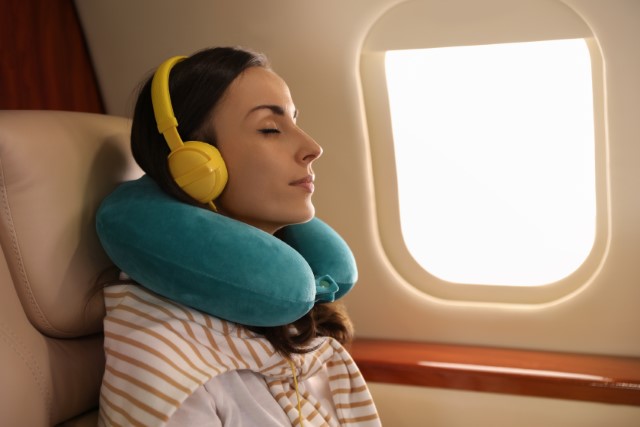
Advantages of Plane Travel
Air travel has many advantages. When going far distances, it’s the most convenient (and fastest) way to travel.
Compared to taking a train or a car, a plane can travel within one day distances that would take days or longer to traverse using other methods.
Here are the advantages of air travel.
Superior Speed
Air travel will get you where you want to go much faster than other available types of transportation (if any are available).
With long-distance trips, air travel will likely be the only option. If you’re traveling across the ocean, it will be the only option (unless perhaps you’re going on a cruise).
Greater Comfort
Depending on the specific airline and the class, you’ll probably find flying quite a bit more comfortable than other kinds of travel (such as train or especially bus).
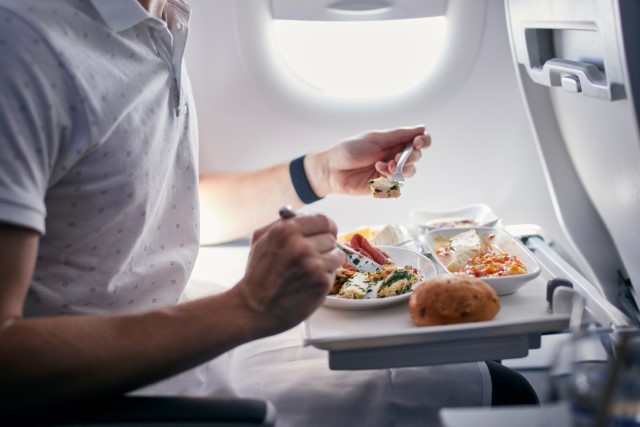
If you go with business or first-class, you can likely expect to enjoy not only large, comfortable seats but amenities such as delicious complimentary meals.
May Be More Economical
It might seem counterintuitive, but in some cases it’s cheaper to fly than to take an alternative mode of travel. Do your research to find out what the case is in your particular situation.
If you’re considering traveling by car, think about the cost of gasoline and the wear and tear on your vehicle.
Better Safety Overall
Overall, air transportation is considered a safer mode of transportation than driving.
Disadvantages of Plane Travel
Despite the convenience of air travel, it does involve certain hassles and headaches.
Spending Extra Time in Airports
Traveling by plane means that you have to deal with attending and spending time in airports. You will often have to deal with long lines and hassles at security checkpoints.
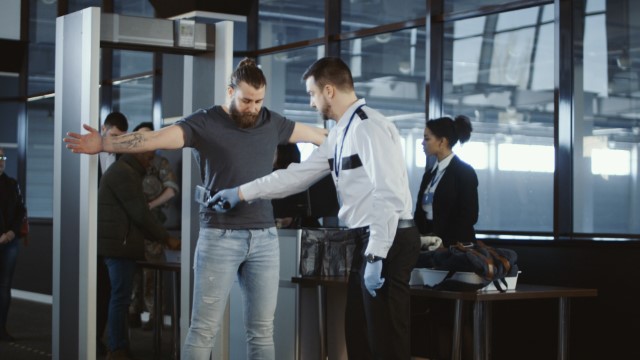
Security checkpoint requirements often mean that you must get to the airport a minimum of two full hours before the time of departure.
Potential Layovers
If you will have any layovers on your trips, you’ll have to find your way from one gate to another. Sometimes, you’ll have to do this in a limited amount of time.
There are also many instances where flying isn’t always the fastest mode of transportation. This is especially true when you factor in the time you spend getting to and from airports on each side of your journey.
Need to Get to Airport Early
You’ll have to get to the airport early in order to check in. Remember there are often security lineups to deal with. Another task you’ll spend time on is waiting for your luggage on the baggage carousel.
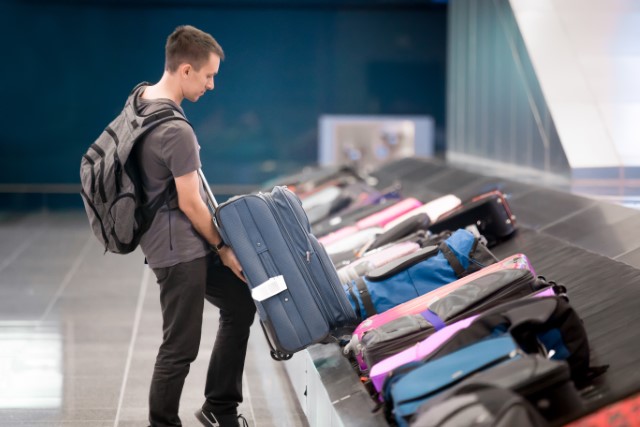
When all is said and done, it’s possible that a flight that is only a few hours in itself will actually involve several hours more of effort.
You’ll need to consider the distances you’ll be traveling to see if air travel is really worth it. If you’re only traveling a few cities or states over, driving or taking a bus might be faster.
May Be More Expensive Than Other Options
Flying can be quite expensive, sometimes much more expensive than the costs involved in alternative modes of transportation. Of course, this will depend on your destination, the airline you want to fly with, and the class you choose (whether economy, business-class, or first-class).

If you want to travel with other people and are covering their expenses, air travel will become much more expensive than traveling by vehicle. This is, of course, because each person must have an individual ticket.
If you have or rent a larger vehicle, such as an SUV, you will be able to fit in the entire group with no extra charge for extra people.
You’ll have to pay more if you want the extra comfort and amenities of business-class or first-class travel. Depending on the airline and your budget, this might be prohibitively expensive.
Exposure to Germs
Flying can be a bit nerve-racking if you’re afraid of germs! After all, air travel involves being in an air-tight container with many other people, breathing in the same air over and over again.
Missing Luggage
Luggage can go missing. Your checked luggage is always at risk of being lost when you travel by air. This can lead to all kinds of headaches and the loss of some of the enjoyment of your vacation.
Alternatives to Plane Travel
Depending on your destination and the distance between A and B, there might be transportation alternatives that you can consider using instead of air travel.
Train
Many travelers consider a train journey to the most relaxing type of trip.

You get the best of both worlds:
- The ability to sit back and enjoy a trip without having to drive
- The experience of traveling overland and taking in the passing scenery
Another advantage of train travel is that you often get a lot more space than you would on a plane, and you can even choose to pay for a private room or car.
Trains are also a great choice if you love a delicious dinner. Many trains offer the chance to partake of sit-down meals beside large windows. You can just relax and watch the world go by.
Depending on the distance you’re traveling, going by train can be less expensive than by plane.
Coach or Bus
The coach or bus tour experience can vary widely and depends on the type of bus and quality of service that you choose.
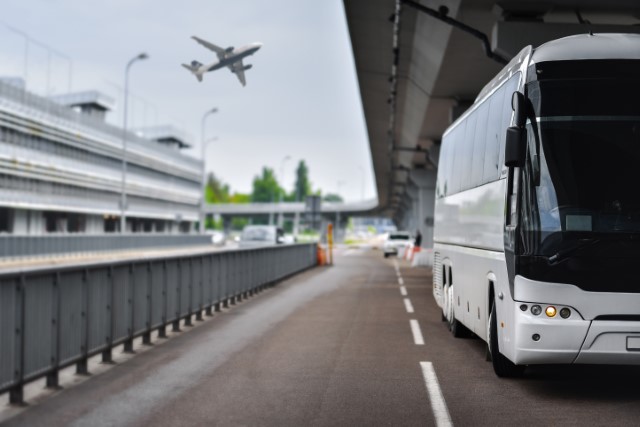
We’ve all heard of the cheaper and most popular bus lines, but did you know that there are also luxurious coaches in service? One of them, the Vonlane bus, is especially renowned for its amenities.
The Vonlane bus company only operates in Texas and is geared toward business travelers, but there are other lines out there. Do some research if you’re interested.
Private Vehicle
If you’re heading somewhere that you can reach by car, going by private vehicle might be the right choice for you.

When you travel in your own car or a rental vehicle, it means that you can use it for getting around after you reach your destination. This is convenient and can help you save a lot of money.
But remember that you’ll have to pay for gas, any rental charges, and insurance. Take all these things into account when creating your travel budget.
Boat or Ship
In some cases, you might find that travel by boat or ship is a possibility. An example of this could be if a destination is reachable by way of a cruise.
For obvious reasons, a journey by water will take a lot longer than other forms of travel.
Depending on how far you’re traveling, the journey could even take several weeks (or even months). Make sure you’re not prone to sea sickness before even considering going on a long trip by water.
What Are Effective Ways to Find the Best Airfare?
Now that you’ve had a look at the different options, have you decided that air travel is the way to go? If you’re ready to book your tickets, keep the following tips in mind.
Ignore cheap airfare myths
You’ve probably run into one or a number of cheap airfare myths online. Don’t fall for them!
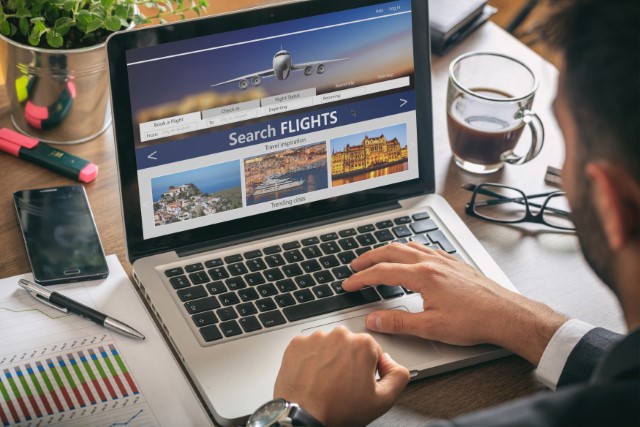
One myth is the idea that it will always be cheaper to buy your airfare on a Tuesday or another specific day of the week. This isn’t true.
The prices will vary from day to day and week to week, but you can never count on one specific day always being cheaper.
Another myth is that searching in an incognito window will definitely bring you better deals. There’s certainly no harm in trying this, but don’t count on it working.
Another often-made claim is that it’s impossible to predict what a price will be and that websites are only able to guess, often making the incorrect prediction. This is also wrong.
Here’s the truth: the pricing algorithms and advanced systems that airline companies use today are too sophisticated to allow people to game the system.
This is why these myths, and many others, no longer hold true. Today’s algorithms base prices and time sales on passenger demand, the time of year, big events and festivals, weather, fuel prices, and other factors.
Be flexible about your destinations
You have a better chance of finding a great deal if you are open-minded when choosing a destination.
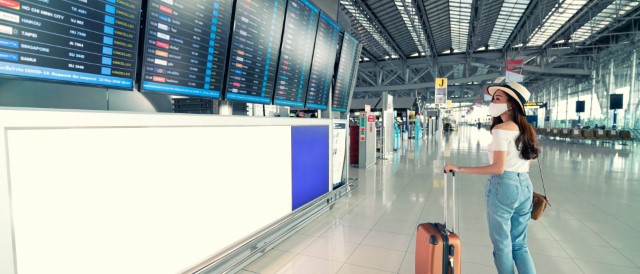
Check out a site such as Google Flights, Momondo, or Skyscanner to explore your flight and pricing options for different destinations. You can compare a number of different destinations at once.
Keep an open mind about your travel dates
Keeping an open mind when it comes to the days of the week and dates on which you travel will go a long way in helping you save money.
In order to get the best deals, you generally need to be willing to travel during a less popular time for travel to your specific destination.
Another factor that usually impacts ticket prices is annual holidays, such as Thanksgiving, New Years Eve, and Christmas.
If you’re traveling to Europe or other popular tourist destinations, the best course of action is to do so off-season. For example, you’ll want to avoid going to Paris in the spring, when everyone else is going there.
Consider not flying direct
Another way to save money on air travel is to take an indirect flight. In other words, if you’re traveling to a specific European destination, it will probably be cheaper to get there via another spot in Europe.
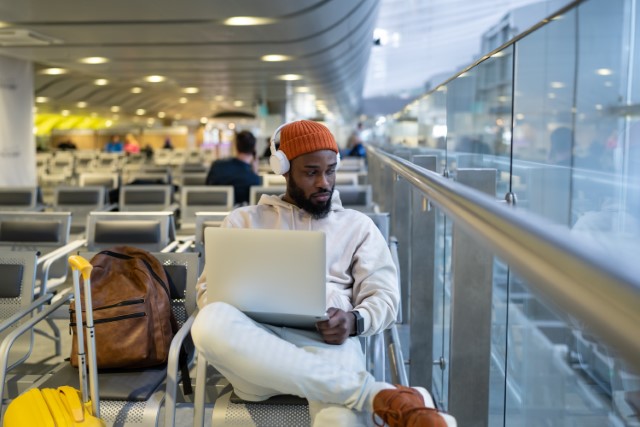
For example, if you’re going to Paris and there is a chance to stop in Dublin or London on-route, you’re likely to save money if you do so.
Fly budget airlines (sometimes)
Today, it’s possible to find long-haul (for example, trans-Atlantic) routes offered by budget airlines. You’ll have to be prepared for some sacrifices in the way of comfort and amenities, but you will save lots of money.
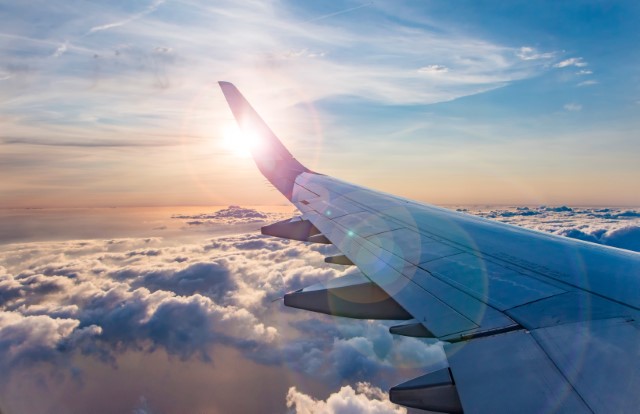
Be ready to pay extra if you want upgrades such as meals and checked baggage. Before deciding to fly on a budget airline, you need to know a bit about how they tend to run and what the experience they offer generally is.
Don’t fall into the trap of thinking that all budget airlines are the same. They’re not.
Some offer better amenities and service generally. There are variations in fees, policies, and luggage weight and size allowances.
Look for discounts (military, student, senior, membership, etc.)
It’s a good idea to sign up for newsletters that could give information on discounts before searching for and booking flights. Look into mailing lists at websites that provide last-minute deals.
You can also check out airline newsletters, which quite often offer frequent flier bonuses. If you want to visit some of the most popular websites for seeking deals on travel, look at Secret Flying, Scott’s Cheap Flights, Airfarewatchdog, Holiday Pirates, and The Flight Deal.
Comparison shop
You should span your search over several different search engine websites. This is important, as some don’t include any budget airlines or lesser-known foreign ones because those types of airlines hesitate to hand over a booking commission.

There are also sites that don’t include non-English language booking sites. This means that you’ll miss out on them entirely. Spend time searching through and comparing the offerings of the different search engine sites.
Some of the best sites to start with include Skyscanner, Google Flights, and Momondo.
Consider mixing and matching airlines to get from A to B
Don’t feel that you must stick with just one airline for your trip to or from your destination.
As long as you’re willing to plan and maybe put up with a little inconvenience, you can go with two different airlines instead. Sometimes you can save money by doing this.
Start your search with ticket prices for one person
There are usually advantages to beginning your search for ticket prices by beginning with just one person, even if you’re traveling with one or more other individuals.
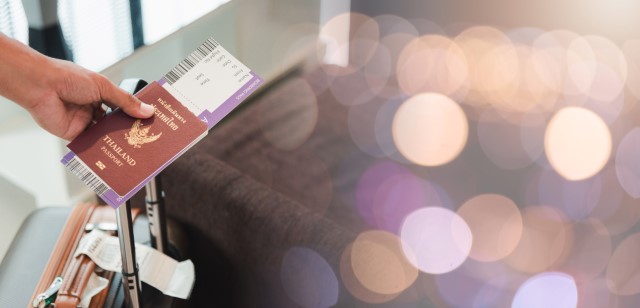
If you try to search for tickets in a group for the people you’re traveling with, you might find that airlines provide the highest price in a group of tickets. This means that if you go with the prices offered in this search, you will have to pay more money.
Book at the right time
When deciding the best time to book your air travel tickets, you need to consider:
- Whether you’ll travel on an international or domestic flight
- The date and time of year during which you plan to travel
- Your destination
It’s impossible to overstate the importance of timing when buying air travel tickets. Depending on the specific circumstances, booking too early or too late can be detrimental to your pocketbook.
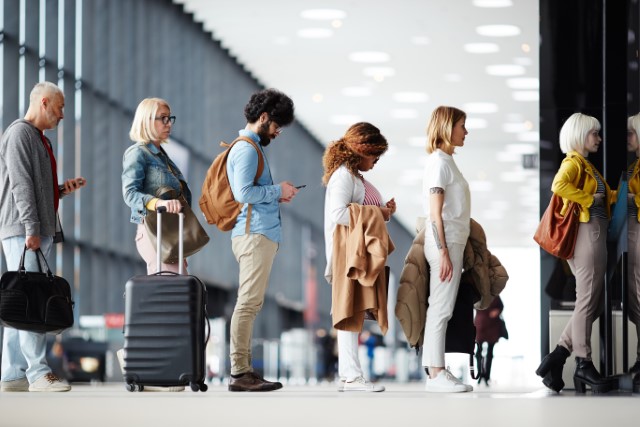
For domestic trips, it’s generally a good idea to buy your tickets around one to three months before the date of your trip. For international journeys, you should book even earlier than that. You may want to purchase your tickets as early as five and a half months before you want to travel.
While many people used to think that it’s cheapest to book your flights on a Tuesday at midnight, this no longer applies. One reason for this change is that many business travelers book their tickets during the workweek.
Frequent Flyer Programs: Pros and Cons
Frequent flyer programs are another popular avenue people take to try to save money on air travel tickets.
Pros:
- The main pro, of course, is the rewards that you can get in frequent flyer programs. You will be part of a loyalty program and can have the chance to get not only cheaper tickets but also superior luggage allowance and airport lounge services. If you enroll in a frequent flyer program, keep track of the points that you collect and the available rewards.
- Some frequent flyer programs include the chance to convert some of your points to e-money if that’s what you’d like to do. You can use this e-money for other elements of your journey.
- With most frequent flyer programs, the number of points you collect depends on how much distance you travel. If you’re a frequent traveler, you’re in a great position to collect a large number of points.
Cons:
- Your frequent flyer program might only provide points that can be used for one specific airline. This can cause some inconvenience. Policies like this can mean that if you collect a lot of miles with one airline, you cannot use them for discounts with another.
- Frequent flyer program points can involve expiration dates. If this is the case, you’ll be required to redeem the points before they lose their validity. Make sure to check the policies of different frequent flyer programs before enrolling and starting to collect points. You may find that their policies simply don’t fit your travel habits and plans.
Getting Ready to Go to the Airport
Making sure that you have all the necessary knowledge and collect together all the items you need to bring in advance will help you minimize stress at the airport.
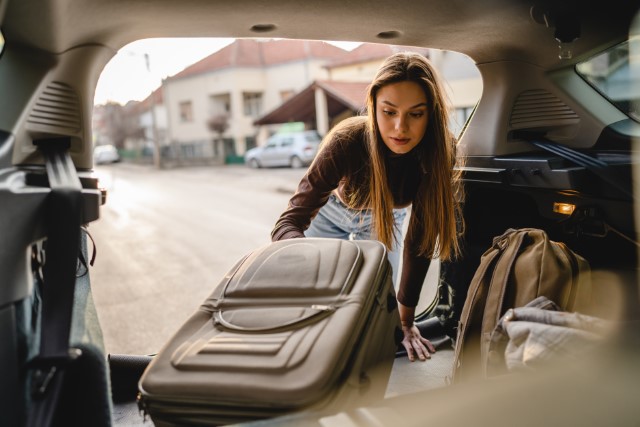
Let’s go over some of the things you need to keep in mind to create the smoothest possible experience.
Some of the tips in this air travel guide may be things you already know, but my guess is there will be a couple of tips and tricks that can really transform your travel experience.
Get there early
It’s essential that you get to the airport very early.
Check with your specific airport and airline for just how early that should be. In general, the earlier, the better.
Arriving late for travel at the airport will make everything more stressful. You’re more likely to forget things or put items in the wrong places.
Eat a meal and use the bathroom before you arrive
Depending on which airline you’re going with, you might not be given a meal (or a complimentary meal, in any case) on your flight. Don’t arrive at the airport with an empty stomach.
It’s best to use the bathroom just before you leave home, too. You might have trouble finding the airport bathrooms or end up with a long wait.
Have your ticket or boarding pass accessible
You need to keep your ticket or boarding pass accessible, for obvious reasons.
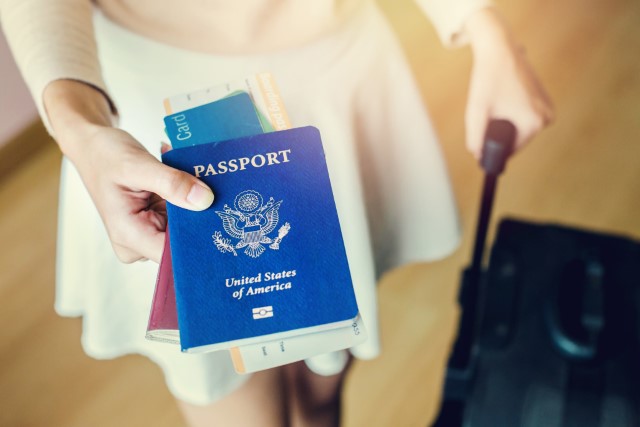
Plan far ahead about where you will put this so you’re not making decisions at the last minute.
Wear and carry as little metal as you can
You’ll have a lot of hassle in security if you have a lot of metal on you. Most frequent flyers know it’s best to avoid wearing anything with metal in it.
If you wear a belt that has a metal buckle, you’ll be required to take it off. If you want to wear any significant pieces of metal jewelry, make sure to put them in your carry-on bag before you go through security. Your keys and change can also be put in your carry-on bag.
Alternatively, you could put the contents of your pockets in a plastic bin at the airport. Flyers with body piercings beware that you’ll be subjected to a pat-down if you don’t take them out beforehand.
Wear shoes that are easy to remove and remember socks!
You’ll regret it if you don’t wear shoes that you can quickly and easily take off and put on. You’ll need to take them off at security. This is a reason why you’ll want to wear some socks. With all the bare feet that will be touching the floor during the course of the day, you will probably want some fabric between yourself and it.
Get your cameras and laptops ready for screening
At the security checkpoint, you will have to remove your laptop from its case. An exception to this rule is if your laptop case is TSA-approved. If you have a camera that uses film, be aware that X-ray screening can cause damage. Request for it to be examined by hand by an inspector instead.
Make sure you have your guidebook
You should have easy access to the guidebook for the city or destination you’re visiting. You can spend some or all of your time in the sky reading the guidebook and learning all about the area you’ll be exploring.
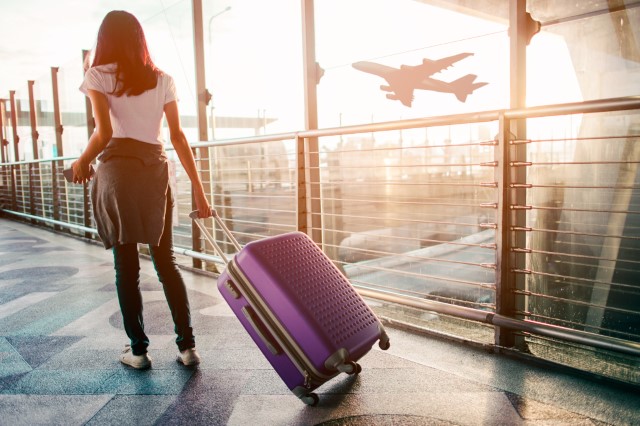
How to Pack for Air Travel
No air travel guide would be complete without a discussion of packing for your trip. You need to know how and what to pack to get ready for the airport if you want to have a successful trip, and there are some special concerns and things to know when traveling by plane.
Let’s go over that information here:
- Remember that if you’re carrying any liquids or gels in your carry-on, you must put them in small containers and these containers must be contained within plastic zip-lock bags (or special clear travel toiletry bags). When you’re about to go through airport security and its X-ray machines, you will need to take these bags out of your carry-on luggage.
- Make sure that you have your passport and boarding passes in easily accessible places.
- Wear shoes that you can easily take off when you go to the airport. This is because you’ll need to take them off when going through security. This is why you should wear socks. Most of us prefer not to get our bare feet on the dirty airport floor!
- Wear and have as few metal items on you as possible. If you have a metal fastening on your belt, be aware that you’ll need to take it off when going through security. You will have to take off any jewelry and take change out of your pockets, too.
- Your paperwork must be easily accessible. Make sure you can easily reach your ID and boarding pass when you’re entering the security line.
- Ensure that all your personal items and electronics are seen as acceptable by the TSA.
Carry On Packing Tips
The last problem you want to run into while getting ready to board your flight is to be told you’ve packed the wrong things in your carry on. There are several rules you must follow.

You cannot have full-size bottles of any liquid products, such as shampoo, in your carry-on. Such products need to go in your checked baggage.
If you will have any liquid products in your carry-on, they cannot be any heavier than 3.4 ounces (or 100 ml). All the containers must fit inside one quart-size plastic bag with zip top. Exceptions include food for babies or kids, and essential medications.
Pack essentials in your personal bag in case your carry-on is gate checked
Remember that your carry-on might be gate-checked. This is true even if you’re careful about keeping the bag within the proper size and weight limits.
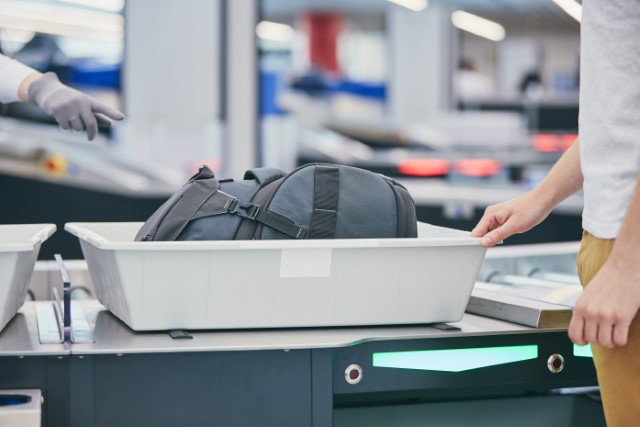
More so, you may not realize that it’s possible for bags that are gate-checked to be lost by the airline. This is why it’s important that you keep essentials in your personal bag rather than the carry-on.
Key things to keep in your personal bag are:
- Any medicine you’ll need access to
- Expensive electronics
- All travel documents
Your carry-on must also have a luggage tag to pack properly.
Keep your carry-on light
For your own comfort and convenience, it’s best to try to pack as light as you can with your carry-on luggage. There are a number of ways that you can do this.
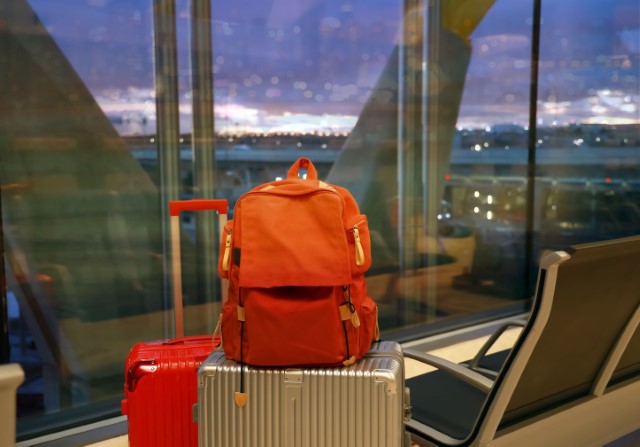
You can start out by choosing a carry-on bag specially designed to be lightweight that is engineered to fit as much as possible. You want a carry-on that features compartments and pockets for organization.
It’s always a good idea to bring some of your clothes in your carry-on, in case your checked luggage goes missing. You want to have enough in your carry-on to tide you over while the airline is finding your lost bags.
The clothes that you will want to bring on your trip depend on:
- Your destination
- How long you will be there
- What you plan to do
Try to put lighter weight pieces in your carry-on. Any shoes that you include in your carry on should also be as lightweight as possible.
Some examples of lightweight footwear include ballet flats and sandals. Of course, when bringing shoes on a vacation, try to make as many of them multi-purpose as possible.
Footwear tends to take up a lot of room and is a hassle to pack. If you bring any outerwear (such as a jacket) in your carry-on, try to make it a lightweight one.
Many retailers market jackets specifically made for their easy portability. You should pre-pay your carry-on fees.
Paying your carry-on fees online will usually mean a lesser charge. You can even pay for your carry-on at the same time that you book your ticket.
Checked Luggage Packing Tips
Before deciding what kind of luggage to bring and what you will pack in it, do lots of research and determine what you need and truly want to bring.
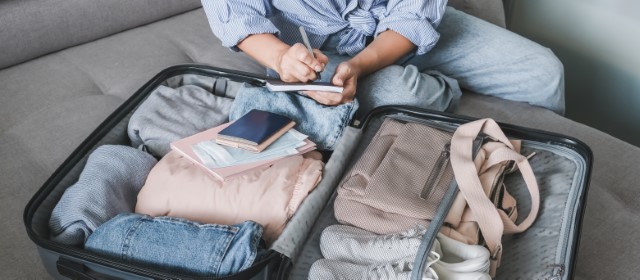
Don’t underestimate how important this research process is if you want to have an enjoyable trip!
Be careful about your suitcase size
Think about choosing hard-sided suitcases, and try to avoid getting ones that are too big for your needs. This is because of the real tendency to pack too much when you have too large a case.
Before you start packing it, think long and hard on what clothes you really need to bring. Once you’ve laid everything out, start editing. It’s almost certain that there is quite a bit you can leave out.
Pack efficiently
When packing your luggage, ensure that every bit of space is occupied in the bag. You can do this by turning objects in different directions, creating interlocking shapes.
Other approaches you can take is rolling your clothes. With many types of materials, this can help you not only make the best use of space but also cut down on wrinkles.
Invest in some packing cubes. Using these will help you better organize your things and ensure that you’re easily able to find everything once you reach your destination.
Also, they help to compress your clothes, allowing you to fit more in the case. Remember to put all toiletries in your checked baggage in zip-lock bags.
You’ll be grateful you did this if any of the lids come off. No one wants to find shampoo all over their clothes when they’re unpacking at the hotel.
Other tips to prepare your luggage
Never put anything extremely valuable in your checked luggage. There is always a chance that it will be lost. Also, if you want to put anything that could be broken in your bags, make sure to wrap it in bubble wrap or even clothing.
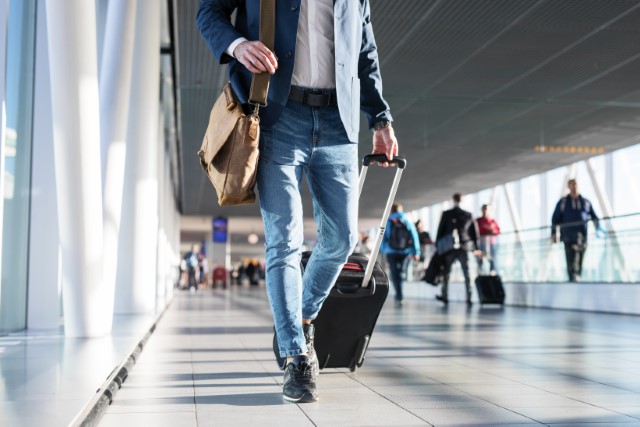
I recommend weighing your bags before you go to the airport. Find and buy a luggage scale especially for travelers.
If the bags you’re using for checked luggage are a bit generic looking and you’re worried that other people might mistake them for their own luggage on the carousel, find a way to distinguish them. For example, you could add something in a bright color, such as ribbon or duct tape on the handle.
Ensure that your luggage has TSA-approved locks so that the inspectors won’t have to break your locks and make you more vulnerable to theft.
Lost Luggage: What to Do and How to Deal With This Problem
It’s true that airlines today are losing fewer bags than they did in the past.
However, there is always a chance that one or more pieces of your checked luggage will be lost when you fly. The good news is that the air industry has also improved its ability to track lost bags.
If you go to the carousel and your bags don’t appear, it’s possible that they’ve been delayed or lost. Whatever the situation may be, the airline will probably be able to find your luggage within about 24 hours.
Go to the airline’s lost baggage counter and report the issue. It’s important that you do this prior to leaving the airport. In fact, certain airline contracts demand that you file within as few as four hours after arriving at your destination.
Filing a lost baggage claim
When filing your claim, you will need to surrender your baggage check. Make sure to copy down the numbers for your own records.
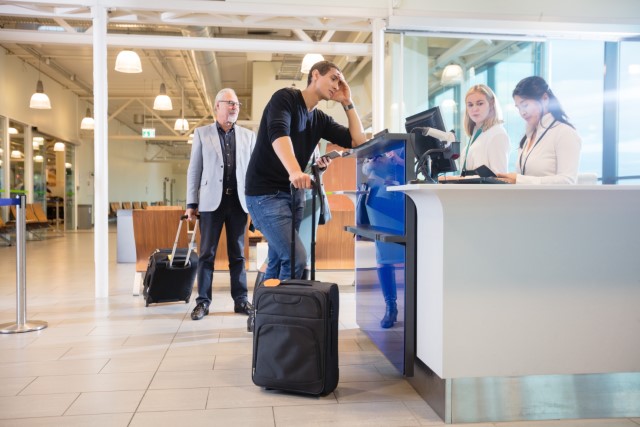
When you complete the form, ensure that you take a copy of any:
- Tracking numbers
- Phone numbers
- Websites
You should also ask the agent for his or her name and write it down. Find out the estimated time period in which your bag should arrive, as well.
Find out if your airline offers reimbursement for any expenses you’ve incurred as a result of your luggage being lost or delayed. Most airlines will offer a bare minimum of essentials (such as basic toiletries).
How quickly can bags be recovered?
Bags that have been placed on the wrong flight can often be retrieved within just a few hours. Luggage that has gone to the incorrect airport might not get back to you for around two days.
Other more complex situations will take longer to resolve. When your bags are found, the airline will typically bring them to you.
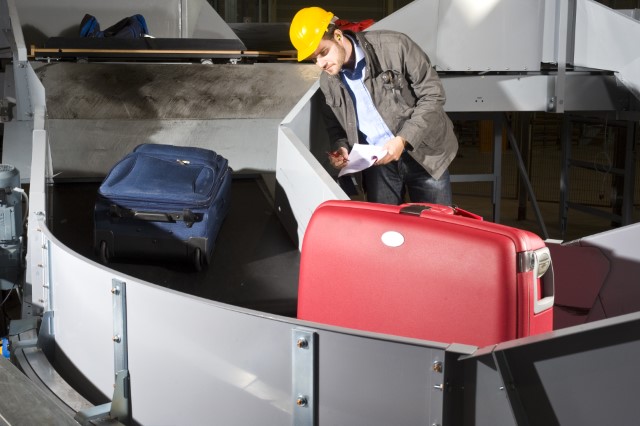
Tell the front desk staff at your hotel or other accommodations to expect the delivery.
If your bags haven’t been recovered within five days, it’s possible your lost bags simply cannot be found. Different airlines have different cut-off points for this.
While some might define luggage as lost when it’s missing for five days, other might require that it be missing for as long as one month.
After the airline acknowledges that your luggage is officially lost, you need to obtain a written claim for damages. This form may well be a different from the missing luggage form that you would have filled out earlier.
You should be aware that the maximum most airlines will pay for lost luggage is $3,500 per passenger (for domestic flights within the United States). This amount will vary from airline to airline.
The rules set out in the Warsaw Convention or the Montreal Convention generally set the standard for rates paid out for lost luggage on international flights.
You’ll Only Receive the Depreciated Value for Lost Luggage
Be aware that you won’t be covered for the original purchase price of items in your luggage. Instead, you’ll only be compensated for their depreciated value.
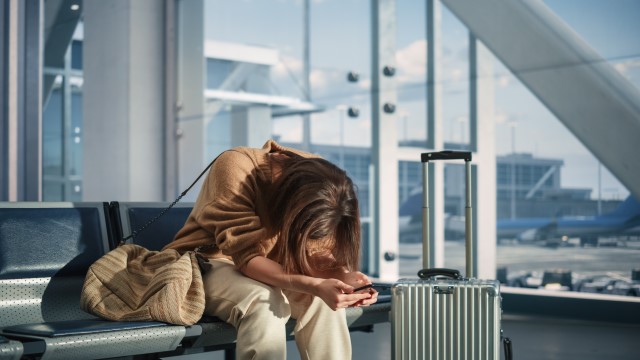
The airline will ask you for proof of what you paid and you’ll need to engage in a certain amount of negotiation while the depreciated value is being determined.
What is “Excess Valuation” Protection?
If the contents of your checked luggage will be worth more than $3,500, look into purchasing “excess valuation” protection offered by your airline.
It’s possible, however, that your travel insurance or homeowner’s insurance might cover some of these items, so find out about this first. Your credit card might also offer either automatic or optional supplemental coverage.
There are certain kinds of items that will not usually be covered by airlines. Examples include heirlooms, jewelry, and money. If you want to bring anything like this, make sure it goes in your carry-on bag.
Ways to Prevent Lost Luggage
Finding out that your luggage is lost is always a stressful experience! You could end up spending a day or two or an even longer chunk of your vacation without enough to wear or certain necessities and conveniences.
Luckily, there are things you can do that may help cut down on the risk that your bags will get lost.
If possible, take direct flights
Whenever possible, go with non-stop flights. If you can get to your destination with just one flight instead of having to do transfers and connections, there is less of an opportunity for personnel to lose your luggage.
Do your research on airlines that have better track records when it comes to luggage loss rates.
You can take a look at the reports released by the U.S. Department of Transportation to see what they say about the performance of various airlines. The information provided includes the numbers on baggage mishandling.
Secure your luggage and make it stand out
Try to use luggage that has distinguishing features. This could be something as simple as color or design.
If you have to use bags that tend to look like the ones others use, add something to them that makes them stand out. For example, you could add ribbons or a brightly colored strap.
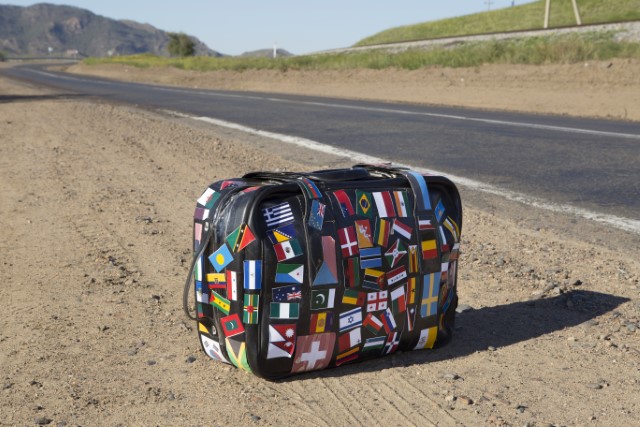
Take a picture of your checked luggage before you hand it in.
While this won’t help to prevent your luggage going missing in the first place, it will certainly make it easier to deal with the issue if it’s lost.
Every bag that you check must have durable luggage tags attached. You need to write your name and contact information on these.
Also ensure that you include some identifying information within the bags, in case the tag breaks off. Some travelers put something like a business card with their name and contact information inside their bags.
Lock your bags (using TSA-approved locks). Properly locked luggage is less likely to be stolen.
Make sure you use TSA-approved locks. If you don’t, TSA will have to break your locks in order to inspect your luggage, and this will leave your belongings vulnerable.
Make sure that you check in on time for your departing flight. If you drop off your bags too late, they might not arrive at the destination at the same time you do. This is because there might not be enough time for personnel to load them on the plane.
What If Your Luggage is Damaged?
If you notice that your bags appear to have been tampered with or mishandled, or they look like they’re damaged, report this before you leave the airport. Take some time to check for this after you pick up your luggage at the carousel.
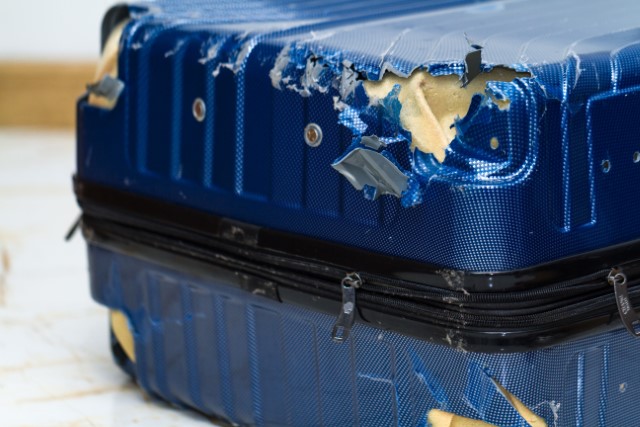
Airlines typically provide some coverage for broken items that were properly packaged. They won’t, however, cover minor damage to the bags themselves, such as scuffs or scratches.
Also, you should be aware that the airline won’t cover any damage created during the TSA inspection. Any such damage must be reported to TSA itself.
What About Stolen Luggage?
The best way to prevent your luggage being stolen is to get to the carousel as quickly as you can after getting off the plane. Are you flying on an airline that scans bags as they’re put in the baggage claim area?
If so, if you leave your bags unattended after you leave that area and they’re stolen, you’ll have to file a report with the police rather than the airline.
Getting Your Bearings When You Arrive at the Airport
Here are some tips that will get you ready to navigate the airport.
Know the basic layout of your destination airport in advance.
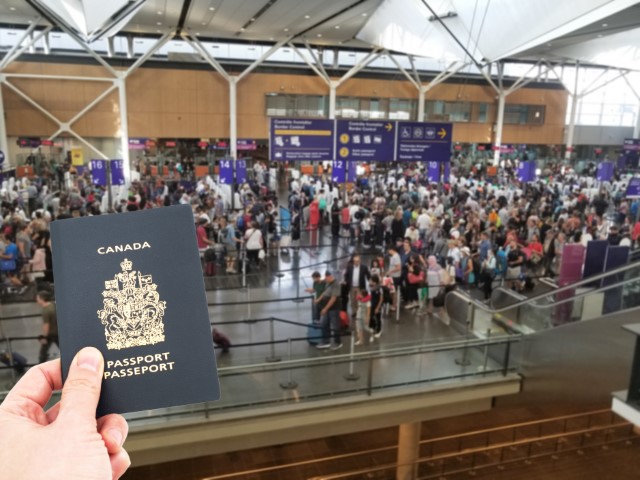
You’ll regret it you don’t already know the airport’s layout before you get there, especially if you’re a bit pressed for time. Airports are difficult to navigate at the best of times, and if you’re going to an especially large or busy one, you will be in for a stressful time.
Research the signage you’ll need to look for.
Before you get to the airport, find out the specific signs that you will need to look for. This is an essential bit of preparation if you don’t want unnecessary frustration.
Create a to-do list for when you arrive.
Creating a to-do list for everything you will have to do when you get to the airport, like using the restroom, going to the currency exchange, visiting the baggage claim, and making your way around the airport before your flight will also make things easier.
It will also help to make sure that you allow yourself all the time that you need. When writing your list, you might realize that there were some tasks that you hadn’t already thought of.
Questions and Answers: FAQs about Common Problems You May Encounter When Flying
Will I have travel sickness?
If you’ve traveled by air before, you know whether you will have travel sickness. If you’re a new traveler, all you can do is be prepared.
- You can take travel sickness tablets. Make sure you have some on you, but it’s generally better to try to take them at least half an hour before you travel. If you forget to bring the tablets, you can ask the flight attendant if they have any tablets on board.
- It can help to focus your eyes on a fixed point rather than moving your glance around.
- Ask your flight attendant if they have any ginger ale. Ginger can be wonderful for settling the stomach.
Is jet lag real, and how can I deal with it?
Yes, jet lag is real. It happens when you travel somewhere where the time is forward. For example, you may have jet lag if you travel from New York City to London.

And there are many other examples that are more extreme in terms of time difference. You’ll have trouble adjusting to the time you’ll find in the destination.
Some of the best tactics to help you deal with jet lag include:
- Get as much rest as you possibly can before getting on your flight.
- Change the time on your watch to the time of your destination half-way through your air journey. This will help you prepare mentally.
- Make efforts to adjust to the time zone of your destination as soon as you can after arriving. Remember to go to bed at an appropriate hour and not to fall into the trap of trying to stick to the schedule of where it would be in your native time zone. Eat at the times appropriate to your new time zone, too.
- Stay hydrated and take care of yourself overall.
Use this Air Travel Guide for the Perfect Trip
Now you have all the information you need to travel by plane without unnecessary frustrations and inconvenience.
When it comes to traveling by plane, being prepared is key to a pleasant journey. I hope you’ve found this detailed air travel guide helpful as you prepare for your upcoming trip.
Please take a look at some of our popular trip itineraries if you’re looking for more inspiration.


